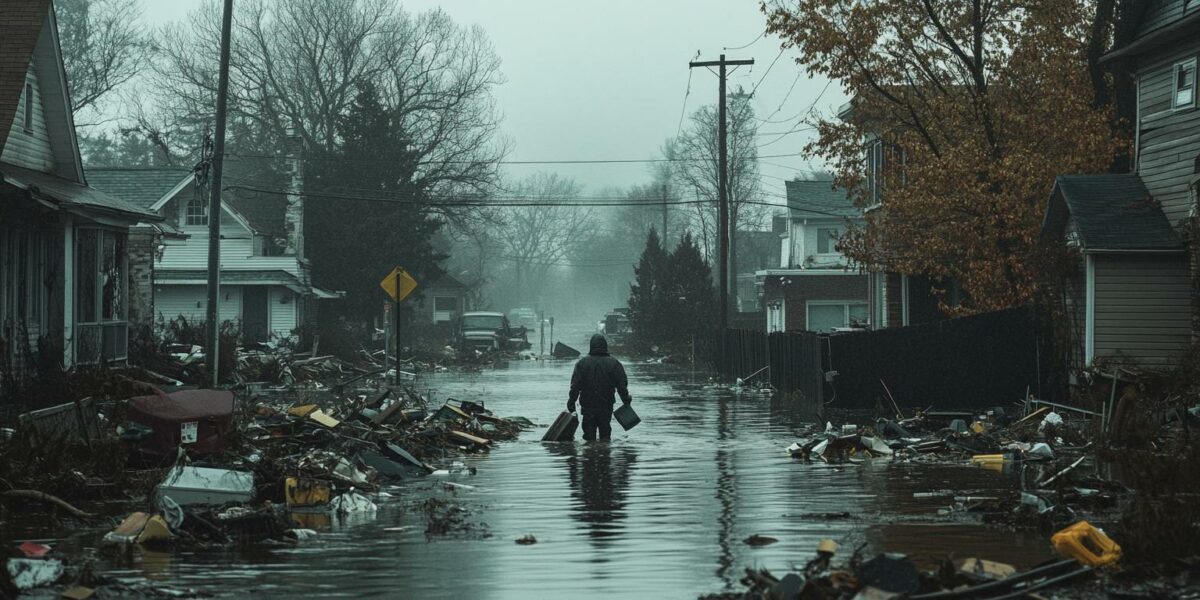Rising Insurance Costs and Climate Displacement
In recent years, homeowners are facing the harsh reality of soaring insurance premiums due to an increase in catastrophic weather events. The phenomenon of climate-induced displacements is becoming more prevalent, creating a new group of individuals who are often referred to as “climate refugees.”
The state of Florida has been particularly affected, with its insurance market experiencing significant upheaval following Hurricane Milton. This disaster highlighted the vulnerabilities faced by homeowners who are grappling with the financial burden of protecting their properties.
Experts have noted a worrying trend in Texas as well, where insurance premiums have seen a dramatic rise. According to a Rice University report, Texans faced a 27% increase in premiums over a year, exacerbating financial pressures on residents.
In the words of meteorologist Rachel Briers, “We’re getting so many natural disasters, insurance companies, they’re having trouble even trying to keep up.” The sentiment captures the struggle faced by both insurers and policyholders.
Personal Stories of Unforeseen Hardships
The story of Heather Hicks illustrates the personal impact of these challenges. After a devastating storm in May, Hicks found her home insurance claims denied, forcing her family to pay $30,000 out-of-pocket for repairs. This financial strain has led them to abandon plans to rebuild.
Heather’s family is now living in a relative’s RV, contemplating a future away from their devastated neighborhood. “We just can’t go through that again,” she expressed, highlighting the emotional and financial toll such events can take.
The increase in insurance costs is not just about numbers. It’s about real people facing difficult decisions, such as:
- Choosing between staying and rebuilding or relocating entirely
- Finding alternative living arrangements due to unaffordable premiums
- Dealing with the emotional aftermath of losing a home
These stories are becoming increasingly common, painting a picture of a growing crisis that demands attention and action.
Broader Implications and Future Concerns
The rise in climate-induced displacements comes with broader societal implications. As more families like the Hicks face such challenges, communities are witnessing shifts in demographics and economic stability. The term “climate refugees” is no longer hypothetical but a stark reality.
Experts predict that the number of displaced individuals will continue to grow over the next two decades. This projection raises concerns about housing availability and the capacity of support systems to accommodate affected populations.
Insurance companies are also under pressure, struggling to balance profitability with the increasing frequency of natural disasters. This instability in the insurance market could further exacerbate the challenges faced by homeowners.
The situation calls for innovative solutions and collaboration between policymakers, insurers, and communities to address the root causes of climate change and mitigate its impacts on vulnerable populations.
Understanding the Urgency
The current state of affairs surrounding climate change and its impact on homeowners is a reminder of the urgent need for action. As weather patterns become more unpredictable, the risks associated with homeownership in certain areas are magnified.
The experiences of those displaced serve as both a warning and a call to re-evaluate our approach to climate resilience. Strategic planning is essential to safeguard communities and ensure sustainable living conditions for all.
The reality is that climate change is not a distant threat but an immediate challenge that requires proactive measures. Addressing these issues head-on is crucial for both current and future generations.
Ultimately, the path forward lies in recognizing the interconnectedness of environmental, economic, and social systems and working collectively towards a more resilient future.



christian
Thanks for shedding light on this issue! It’s a wake-up call for everyone, not just those in disaster-prone areas.
AutumnSapphire1
Surely there’s some kind of tech solution to all this climate chaos, right? Maybe drones or something to help assess damage faster?
scarlettquantum
Hey, is anyone else wondering if there’s a way to make insurance companies more accountable? Like, they just can’t keep denying claims!
mateotitan
It’s heartbreaking to hear stories like Heather’s. The system needs to change to support people, not leave them homeless. 😢
alexisunity
Wow, the situation in Florida is insane. How are people supposed to afford rebuilding with these rates?
AmeliaEmpyrean
Can insurance companies really keep hiking up prices like this without any regulation? Seems like we’re all getting pushed out!